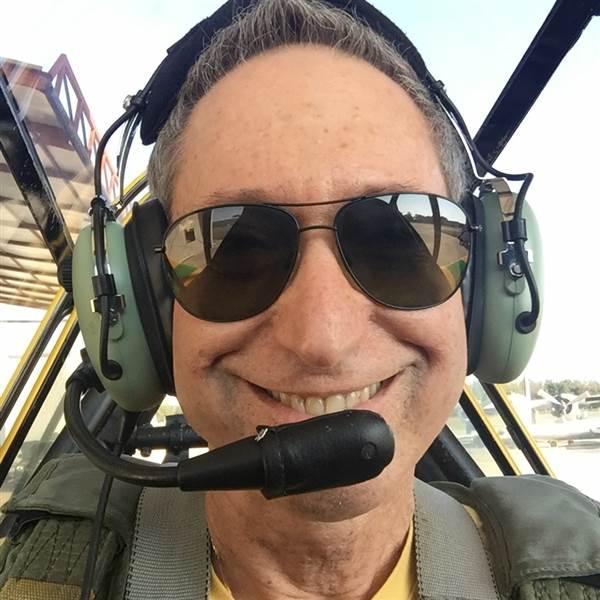Most of the questions come from parents of teenagers contemplating learning to fly. The first question I ask is, are you on any medications for ADHD? If the response is yes, my answer is an adamant no. The next question is, are you having symptoms? If so, another adamant no. My one golden answer from the want-to-be pilot is my ADHD was diagnosed ten years ago, and I have not had symptoms or been on medications for years. On August 30, 2023, the FAA opened the door to enable past ADHD patients, not on medications, to pursue a pilot certification.
Knowledge of common ADHD symptoms alone gives me the shivers, knowing this is the last person who should be PIC in an aircraft. I am giving you an honorary CFI. Would you teach a student If they lack attention to detail, have difficulty focusing, have trouble listening, fail to complete tasks, have poor organizational skills, avoid tasks requiring sustained focus, lose essential items, are distracted easily, and are forgetful? If the individual has five or more of these symptoms for longer than six months, a diagnosis of ADHD is likely. Each of these symptoms could lead to an accident report by the NTSB.
The FAA attention deficit hyperactivity disorder (ADHD) and/or use of ADHD medications has four diseases/conditions that the pilot applicant must meet. [CL1] The applicant must not have been on any ADHD medications or used any ADHD medications for any reason in the past four years. The applicant also must not have had any symptoms of ADHD in the past four years and no instability in academic, occupational, or social functioning within the last four years. The applicant must not have had any other psychiatric condition(s) or diagnosis (current or historical) during this period.
The FAA evaluation includes that the individual must see a psychologist or neuropsychologist for records review and assessment. The FAA has set up two tracks that include a fast-track ADHD evaluation that is completed by the psychologist or neuropsychologist and is reviewed by the AME. The HIMS psychologist or HIMS neuropsychologist conducts the standard track FAA ADHD evaluation.
The standard track evaluation includes evaluating when the ADHD medications were stopped. The applicant must have discontinued and be off of ADHD medications for 90 days before testing or assessment.
The American Psychiatric Association diagnoses ADHD by a criterion called DSM-5-TR (The Diagnostic and Statistical Manual of Mental Disorders). The ADHD treatment guidelines for evaluating and treating children and adolescents ages 4 to 18 are well established. Treatment is initiated if this patient population has behavioral or academic problems and shows inattention, hyperactivity, or impulsivity. Therapy for children and adolescents ages 6 to 18 includes parent training in behavioral management and FDA-approved medications. The guideline medications of choice include stimulant medications, atomoxetine, extended-release guanfacine, and extended-release clonidine.
ADHD is a condition that is often not recognized in adults. In the 1990s, the common thought was children would grow out of ADHD as adults. Studies since the 1990s have shown that 60% of children with ADHD have continued to have cognition problems as adults (Br J Psychiatry 2009;194(3):204-1). The medications for adults with ADHD are similar to those for children and adolescents.
The most commonly prescribed stimulant drugs are amphetamine/dextroamphetamine (Adderallâ) and methylphenidate (Ritalinâ and Concertâ).This group of medications helps the ADHD patient feel more focused. The benefits of stimulant medications, based on neurological studies, are increased attention, memory, reaction time, and information processing speed. The use and benefits of stimulant medications also apply to adults with ADHD. Amphetamine increases the concentration of dopamine, norepinephrine, and serotonin that circulates in the brain. Side effects are increased blood pressure, weight loss, insomnia, increased heart rate, restlessness, and reduced height in adulthood. Stimulant medications have a high abuse potential and are a controlled substance. At the time of this writing, there is a national shortage of stimulant medications for ADHD that has been ongoing since the fall of 2022.
Atomoxetine (Stratteraâ) is a non-stimulant, selective norepinephrine reuptake inhibitor medication for ADHD that improves cognition in children and adults. Atomoxetine indirectly increases dopamine levels besides increasing norepinephrine in the brain, but exactly how norepinephrine affects ADHD cognition is not clearly understood. Atomoxetine increases heart rate and slows growth rate in children and is a second-line therapy when stimulant medications are not helping the patient or are otherwise contraindicated. Guanfacine affects the prefrontal cortex to help increase attentiveness. Clonidine also affects the prefrontal cortex and brain stem to increase attention and decrease impulsivity.
All medications indicated for ADHD are a NO on the FAA medication database. These medications affect cognition and have a high abuse potential with many significant side effects. It is for these reasons the FAA has declared that an applicant with a history of ADHD and taking medications must be off drugs for four years.
Thirteen percent of children, per the CDC, are diagnosed with ADHD. The adult population with the diagnosis of ADHD is 4.4 percent. The people who benefit the most from the August 30, 2023, ADHD guidelines are those who have not had any symptoms or been on any medications for the past four years or more. This opens up the opportunity for former ADHD patients to pursue their dream of becoming a pilot. I welcome you all to the beauty and magnificence of aviation. Be well and safe.





